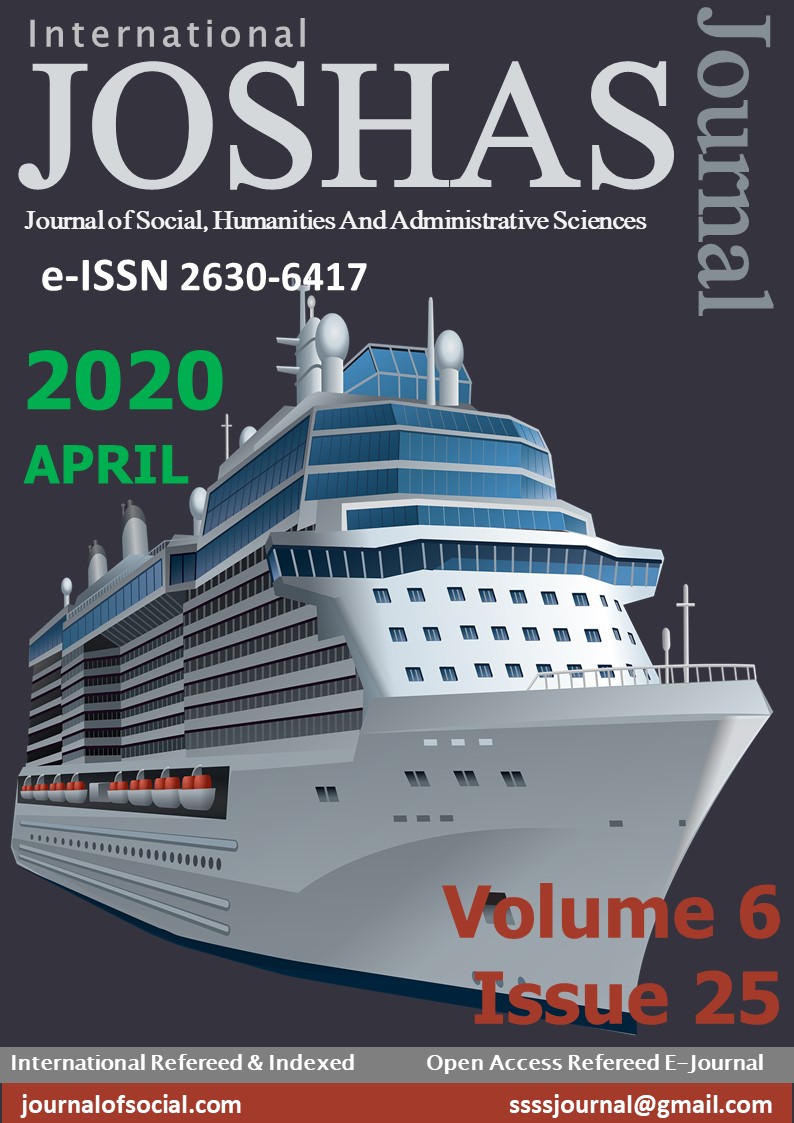Author :
Abstract
Bir bilimsel araştırma sürecine başlarken, araştırmanın nicel ya da nitel verilere göre yapılıp yapılmayacağına karar verilir. Nitel verilerde nicel verilere göre güvenilirlik daha düşük olup, sübjektiflik yüksektir. Öte yandan nicel verilere dayalı araştırmalarda ise daha tarafsız ve objektif veriler elde etmek mümkündür. Fakat bu verileri elde ederken tam ölçüm mümkün olmadığından dolayı, belli bir evrenden örneklem yapılmaya yoluna gidilmektedir. İşte bu noktada bilimsel araştırmalarda örneklemin evreni yeterince temsil edip etmediği sorunu gündeme gelmektedir. Her ne kadar literatürde örnekleme ile ilgili bazı yöntemler önerilmiş olsa da, günümüzde en yaygın kullanılan örneklem büyüklüğü analiz yöntemlerinden birisi güç analizidir. Ancak Güç analizi ile yapılan örneklem büyüklüğü seçiminde, temel istatistiksel bazı kabullenimler ile ters düşen noktalar vardır. Bu araştırmada bu noktalarının incelenmesi ve Güç analizi ile ilgili araştırmaların incelenmesine yer verilmiştir. Araştırmada bu bağlamda istatistik ve bilimsel araştırma yöntemi alanında yapılan çalışmalar bir arada değerlendirilerek, Güç analizi ile elde edilen örneklem büyüklüğü ve klasik yöntemlerle elde edilen örneklem büyüklüğü arasındaki güvenilirlik düzeyleri kıyaslanmıştır. Araştırma sonuçlarına göre klasik örnekleme yöntemleri Güç analizine göre daha etkilidir. Güç analizinin en önemli eksikliklerin başında, örneklem büyüklüğünü belirlerken bir referans çalışmayı baz almasıdır. Bu nedenle örnekleme belirlenirken her iki yönteminde değerlendirilmesinde yarar vardır.
Keywords
Abstract
We firstly decide whether the study is going to be conducted according to quantitative or qualitative data when starting a scientific research. The reliability is lower and subjectivity is higher in qualitative data compared to the quantitative data. On the other hand, it is possible to acquire more unbiased and objective data with the studies based on qualitative data. Sampling from a certain population is required because an exact measurement is not possible when acquiring these data. At this point, the issue of whether the sampling represents the population adequately in scientific studies comes to the fore. Although there are some methods recommended in the literature regarding sampling, power analysis is one of the most commonly used sample size analysis methods today. However, there are some points contradicting with some basic statistical acceptances in sample size selection with power analysis. This study has addressed the evaluation of these points and the studies on power analysis. In this regard, the studies conducted in the field of statistical and scientific study method have been assessed together in this study, and the reliability levels between sample size acquired with power analysis and sample size acquired with classical methods have been compared. According to the study's results, classical sampling methods are more efficient than the power analysis. One of the most significant deficiencies of power analysis is that it uses a reference study as base when determining the sample size. Therefore, it is useful to evaluate both methods when determining the sampling.
Keywords
- Çaparlar, C. Ö. ve Dönmez, A. (2016). Bilimsel Araştırma Nedir, Nasıl Yapılır?, Turk J Anaesthesiol
- Çaparlar, C. Ö. ve Dönmez, A. (2016). Bilimsel Araştırma Nedir, Nasıl Yapılır?, Turk J Anaesthesiol Reanim 2016; 44: 212-8.
- Çapık, C. (2014). İstatistiksel Güç Analizi ve Hemşirelik Araştırmalarında Kullanımı: Temel Bilgiler, Anadolu Hemşirelik ve Sağlık Bilimleri Dergisi, 2014;17:4.
- Delice, A. (2010). Nicel Araştırmalarda Örneklem Sorunu, Kuram ve Uygulamada Eğitim Bilimleri / Educational Sciences: Theory & Practice 10 (4), 1969-2018.
- Koçak, A. ve Arun, Ö. (2006). İçerik Analizi Çalışmalarında Örneklem Sorunu, Selçuk İletişim, 4, 3.
- Kul, S. (2011). Klinik Araştırmalarda Örnek Genişliği Belirleme, Ekstraplevral, doi:10.5152/pb.2011.11.
- Özen, Y. ve Gül, A. (2007). Sosyal ve Eğitim Bilimleri Araştırmalarında Evren·Örneklem Sorunu, KKEFD, 2007/15.
- Özmen, A. (2013). Örnekleme, Açıköğretim Fakültesi Yayınları, Eskişehir.
- Sağlam Arı, G., Armutlu, C., Tosunoğlu, N. G. ve Toy, B. Y. (2009). Nicel AraştırmalardaMetodoloji sorunları: Yüksek Lisans Tezleri Üzerine Bir Araştırma, Ankara Üniversitesi SBF Dergisi, 64-4.
- Süt, N. (2011). Klinik araştırmalarda örneklem sayısının belirlenmesi ve güç (power) analizi, RAED Dergisi 2011;3(1-2):29-33.
- Türnüklü, A. (2000). Eğitimbilim Araştırmalarında Etkin Olarak Kullanılabilecek Nitel Bir Araştırma Tekniği: Görüşme, Kuram ve Uygulamada Eğitim Yönetimi, güz 2000.
